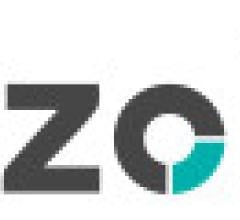
Varian's Ethos artificial intelligence radiotherapy device.
September 28, 2021 — The global radiotherapy devices market is expected to grow from $5.44 billion in 2020 to $5.848 billion in 2021 at a compound annual growth rate (CAGR) of 7.5%, according to The "Radiotherapy Devices Global Market Report 2021: COVID-19 Growth and Change to 2030" report from ResearchAndMarkets.com.
The growth is mainly due to the companies resuming their operations and adapting to the new normal while recovering from the COVID-19 impact, which had earlier led to restrictive containment measures involving social distancing, remote working, and the closure of commercial activities that resulted in operational challenges. The market is expected to reach $7.953 billion in 2025 at a CAGR of 8%.
Artificial Intelligence (AI) is a leading trend in the radiotherapy devices market and is gaining significant popularity in the market. Incorporation of AI innovation in disease care is expected to improve the exactness and speed of analysis, help clinical dynamics, and lead to better results. For instance, in September 2019, Varian Medical Systems, a US-based manufacturer of radiation oncology medical devices, launched Ethos artificial intelligence radiotherapy device. The traditional treatment arranging process takes days to make an improved radiation treatment conveyance plan; however, the new AI advancements are helping to speed up this procedure. AI is also expected to include deep learning applications in treatment planning, clinical decision support, and automated image-guided adaptive radiation therapy and genomic/radio-biologic data mining, thus supporting the growth of the market.
The radiotherapy devices market covered in this report is segmented by product type into external beam radiation therapy devices; linear accelerator devices; proton therapy devices. It is segmented by application into skin cancer; breast cancer; prostate cancer; cervical cancer; lung cancer; others and by end users into hospitals; ambulatory surgical centers; oncological treatment centers.
The high cost of radiotherapy is projected to limit the growth of the radiotherapy devices market as it uses complex machines and involves the services of skilled health care providers. The specific expense of radiation treatment relies upon the expense of medicinal services such as place of patient residence, type of radiation treatment, and the number of medicines required. For example, Proton Therapy is a high-cost therapy that is usually performed in metropolitical cities or at major academic centers. The treatment duration is eight weeks, which leads to huge expenditure on treatment and relocation. According to the report of National Cancer Institutes, approximately $150.8 billion were spent nationally for cancer care in 2018 in America. The high costs of cancer treatment are especially difficult to overcome among the poor or the uninsured or underinsured population. Therefore, the high cost associated with radiotherapy procedures is expected to restrain the growth of the market.
In August 2020, Siemens Healthineers, a Germany-based medical technology company, announced its decision to acquire Varian Medical Systems Inc., for $16.4 billion. The deal is expected to expand Siemens Healthineer's definitive objective of overarching and comprehensive oncology portfolio, including Varian's linear accelerators, radiosurgery devices, and proton therapy suites to Siemens' imaging hardware, laboratory diagnostics, and hospital consulting services. Varian Medical Systems Inc. is a US-based radiation oncology treatments and software company.
Technological advancement is anticipated to drive the demand for the radiotherapy devices market. The advancement in technology is helping to develop low-cost, more effective and efficient, and user-friendly products with precise and improved radiation doses for increased performance in targeting tumors. The advancement from 2D radiotherapy devices to 3D with real-time imaging enabled high conformity of radiation to improve tumor control. For instance, in June 2020, Accuray Incorporated, a US-based radiation oncology company launched CyberKnife S7 System, a radiotherapy device combining advanced precision, real-time artificial intelligence, and speed motion tracking and synchronization treatment delivery for stereotactic body radiation therapy (SBRT) and stereotactic radiosurgery (SRS) treatments. Therefore, the launch of advanced devices is likely to propel the revenues for the radiotherapy devices market in the near future.
For more information: www.researchandmarkets.com/r/aadx3q


 August 29, 2024
August 29, 2024 








